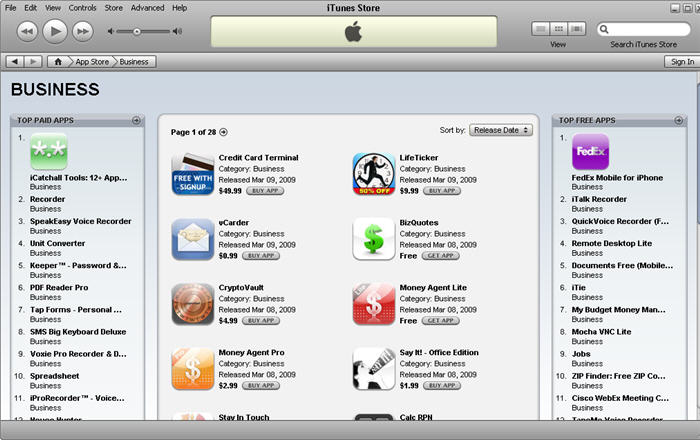The war for mobile developers is on: Do you have to pick sides?

Microsoft has offered up more details on its mobile developer strategy, matched Apple's App Store revenue split and offered a more transparent process for app approval. With the details of Microsoft's plans revealed developers are hit with a conundrum: What mobile platform do you bet on? After all, Apple, Microsoft, Research in Motion, Palm, Nokia and Google's Android all have application markets launched or planned.
But here's the problem: There are only so many developers and there is only so much time. At some point developers will have to choose sides--or at least eliminate a few platforms as options. In the end, this selection process is likely to come down to a few obvious items:
- Money;
- Reach of the platform;
- Developer relations.
In the grand scheme of things all three of those items are probably equal. Meanwhile, all of these application markets offer similar revenue splits--developers get at least 70 percent of the revenue.
From there the winnowing down process becomes a game of market share and relations with developers.
In that context, Microsoft's moves Wednesday make a lot of sense (statement, Techmeme). As Mary Jo Foley reports Microsoft may have homely Windows Mobile software relative to sexier operating systems, but it is compensating in other areas.
Foley writes:
Microsoft will allow devs to see detailed feedback about their app-certification application throughout the approval process via the developer portal, officials emphasized.
(The transparent-feedback perk is no doubt in response to Apple, whose iPhone app store approval policies have been criticized by a number of developers for being murky.)
Microsoft is allowing Win Mobile developers to set different prices for their applications in each market. Developers also will have the option of distributing apps for no cost via the Windows Mobile Marketplace. Microsoft is allowing up to five application submissions as part of the introductory annual $99 registration fee. Student developers won’t be charged the registration fee if they enroll in the Microsoft DreamSpark program.
Microsoft's message: We're going to be better to developers. That's not entirely surprising since I think developer relations are Microsoft's real secret sauce anyway.
Given Microsoft's Windows Mobile penetration--it powers millions of devices in the U.S.--I'll assume that the software giant won't be cut out of the developer picture even if the pace of Windows Mobile releases needs to pick up.
I'd love to hear from developers on this matter since their platform selections will unfold in the months and years to come. It's a topic I'll revisit too. Simply put, what follows is a first crack at how developers may pare their platform selections (it's premature to make any rash decisions since many of these app markets are just about to launch).
Here's a look at the various platforms:
Apple: Based on sex appeal Apple's App Store is a must have platform for developers. Simply put, Apple can pull developers along based on its brand. The revenue split--70 percent to developers--is good, but other processes such as the app approval process are a bit murky. However, the sheer number of applications on App Store means that these processes will be smoothed out. Apple is creating the market for applications that everyone else is trying to copy. One downside: The App Store has a lot of me-too applications so the competition is fierce. It remains to be seen if Apple's App Store becomes cluttered with too much junk.
Bottom line: Mobile app developers have to do the iPhone thing. And for mobile game developers Apple is almost the only game in town. The enterprise app market is developing on the App Store too.
RIM: For the corporate app developers, you have to play ball with an applications market associated with the BlackBerry. For all its fascination with the consumer market, RIM is all business. And RIM's recently revealed pricing tiers lean enterprise too. If you're a game or consumer app developer, however, RIM isn't the slam dunk that Apple is. Another wild card is RIM's developer relations and how easy it is to develop on the BlackBerry platform.
Android: Android's market is up and running and the revenue split is the usual 70 percent. Despite all the Google love that Android gets there are a few big questions for developers to ponder:
- Where are the devices? Right now, you’re developing for the G1 on one carrier---T-Mobile. Neither scream huge dollars.
- What's the potential? The potential is that Android could be huge with its open source roots and Google's clout. However, there's a need for more devices and they aren't expected to arrive until next year.
- Is it worth allocating resources to Android today? Answering that question will solely rest with the resources available. My hunch: You can dabble with Android applications, but it's hard to justify putting all the developer eggs in the Android basket.
Palm: Palm has its mobile app store planned too. The problem here is that Palm's entire business largely rides on the success of the Pre launch and the marketplace is just a hyperlink. Pre could be the next big thing. Or it may only be a moderate success. Hell, maybe the Pre and Palm flop. In any case, the decision to develop Pre apps will depend on how easy it is relative to others. Simply put, there really is no Palm platform today and the company's WebOS is a complete wild-card.
Nokia: Nokia also has a store planned, but the appeal will be limited in the U.S. Why? Nokia is a no-show among U.S. carriers. For international developers, however, Nokia's app marketplace may be a big deal.
These aforementioned issues are at a high-level. Let me know other issues that I neglected to mention for future posts on the subject.
[poll id="106"]
[poll id="107"]
